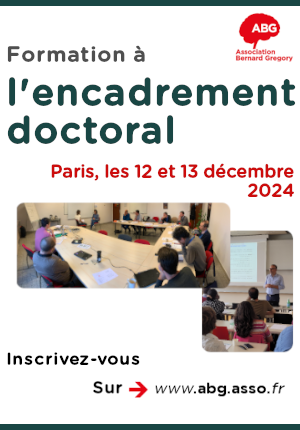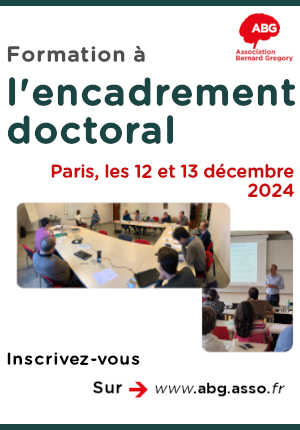Post-Doctoral position in Atmospheric Chemistry F/H
| ABG-126246 | Job | Any |
| 2024-10-11 | Fixed-term 18 Month | > €35,000 and < €45,000 annual gross |
- Ecology, environment
Employer
Ineris (National Institute for the Industrial Environment and Risks), which has about 500 employees, is a national reference body, under the supervision of the Ministry of the Environment, whose main mission is to carry out studies and research to prevent the risks that economic activities pose to the safety of people and property.
Joining Ineris is an opportunity to implement and develop your skills within the framework of research, support and expertise missions on behalf of public authorities and industry. Ineris has 30,000 m2 of laboratories and test halls with multiple state-of-the-art equipment.
Website :
Position and assignments
As part of its research activities and support to public authorities (French Ministry of Environment), the unit ANAE (methods and analytical development for environmental characterization) develops analytical procedures for the characterization of various environmental matrices including air. Its research activities are strongly linked to its implication in the French national air quality monitoring laboratory (LCSQA) and are focused on the study of atmospheric aerosols including their physicochemical characterization, understanding of their sources, emission and/or formation processes, as well as their impact on air quality (toxicity) and climate.
The knowledge of aerosols (particulate matter, PM) in ambient air is essential to assess health and climate impacts of air pollution. Their sources, formation processes and chemical
composition are still poorly known. Biomass burning accounts for a significant part of the primary emissions of fine PM in the ambient air notably in winter period due to wood combustion used for residential heating purposes. This source also emits large quantities of volatile and semi-volatile organic species leading to the formation, via (photo-)chemical processes, of secondary organic aerosols (SOA) accounting for a substantial part of fine PM concentrations. However, SOA formation yields from this source, or from the corresponding SOA precursors emitted, are still poorly documented in the literature especially for night-time processes (involving nitrate radical). Moreover, the toxicological potential of primary and aged biomass burning emissions, or related SOA, is also poorly understood and notably the links between biological responses and particle physicochemical properties.
In this context, the main objectives of this post-doctoral work are to study and understand the SOA formation processes from residential wood-burning appliance emissions (logwood stove) and from typically emitted SOA precursors (e.g., polycyclic aromatic hydrocarbons (PAHs) and phenolic compounds or mixture of them) (WOODNIGHT and SOTOX projects). To do so, logwood stove emissions, or pure precursors, will be aged using an oxidant flow reactor (OFR) under different oxidation conditions (OH, NO3 or Cl radicals), simulating the diurnal and nocturnal atmospheric processes. A detailed physicochemical characterization of the gaseous and particulate phases will be carried out. The implementation of advanced instrumentation such as a CI-ToF-MS (Chemical Ionization - Time of Flight-Mass Spectrometry), combining several ionization modes (H3O+, NH4+, O2+, I-) and aerosol analysis modules (e.g., Extractive ElectroSpray Ionization or CHARON, CHemical analysis of AeRosol ON-line) will permit to determine and measure, at a molecular level, volatile and semi-volatile organic substances in real time. This will allow the study of the primary particle emission and secondary formation dynamics from the wood log stove emissions, obtained under conditions as representative as possible of a common use. Finally, the analysis of potential links between the detailed physicochemical characterization of the gaseous and/or particulate phases and the biological responses obtained in complementary studies (WOODTOX-ALI and SOTOX projects) will be carried out. These will be conducted in parallel by exposing pulmonary cells at the air-liquid interface (ALI - Air Liquid Interface) or through in vitro/in vivo tests (using hepatic cells/zebrafish embryos) when exposed to particle sample extracts.
Your mission will focus on the following priorities:
- Operate the oxidation flow reactor (PAMOFR) and the state of art of on-line instrumentation (SMPS, CPMA, AAC, ACSM/AMS, CI-ToF-MS + EESI and PTR-MS + CHARON) to perform the aging experiments and measure the chemical and physical properties of the gaseous and particulate phases together with related QA/QC procedures.
- Independently operate these instruments, and other instruments (e.g., gas analyzers) in the laboratory and on the INERIS biomass burning facility.
- Validate and analyze the data by these instruments and interpret the results obtained.
- Link physicochemical characterization with toxicological responses.
- Present results at scientific meetings and during international scientific conferences. Valorize the results through research project reports and publish them in peer-reviewed literature.
Geographic mobility:
Telework
Starting date
Profile
PhD recent graduate (less than 3 years) in chemistry, physics, atmospheric sciences (aerosol/atmospheric chemistry/physics), environmental engineering to which Ineris will be able to provide additional training within the framework of this post-doctoral contract under private law with reference to Articles L1242-3 of the Labor Code and L431-5 of the Research Code.
You have experience in experimental sciences and data analysis, including:
- Operating instrumentation such as PTR-MS/CI-ToF-MS and/or ACSM/AMS.
- Performing smog chamber or OFR experiments.
- Troubleshooting and resolving problems with instrumentation.
- Coding and analyzing complex data sets using Igor Pro.
In addition, you demonstrate the following abilities:
- Strong experimental and lab/field work interest.
- Autonomy.
- Scientific rigor.
- Adaptability.
- Teamwork.
- Synthesis and writing abilities.
- Dynamism, and stress tolerance.
- Very good written and oral English.
Vous avez déjà un compte ?
Nouvel utilisateur ?
Get ABG’s monthly newsletters including news, job offers, grants & fellowships and a selection of relevant events…
Discover our members
 MabDesign
MabDesign  Aérocentre, Pôle d'excellence régional
Aérocentre, Pôle d'excellence régional  CASDEN
CASDEN  ANRT
ANRT  Groupe AFNOR - Association française de normalisation
Groupe AFNOR - Association française de normalisation  PhDOOC
PhDOOC  Ifremer
Ifremer  Institut Sup'biotech de Paris
Institut Sup'biotech de Paris  CESI
CESI  TotalEnergies
TotalEnergies  Institut de Radioprotection et de Sureté Nucléaire - IRSN - Siège
Institut de Radioprotection et de Sureté Nucléaire - IRSN - Siège  ADEME
ADEME  Laboratoire National de Métrologie et d'Essais - LNE
Laboratoire National de Métrologie et d'Essais - LNE  Nokia Bell Labs France
Nokia Bell Labs France  Tecknowmetrix
Tecknowmetrix  SUEZ
SUEZ  MabDesign
MabDesign  ONERA - The French Aerospace Lab
ONERA - The French Aerospace Lab  Généthon
Généthon
-
JobPermanentRef. ABG125662Association Bernard Gregory (ABG)Paris (3ème) - Ile-de-France - France

Responsable Recrutement, Relations Entreprises et Partenariats
Open to all scientific expertisesAny -
JobPermanentRef. ABG125911LVMH Gaïa- Ile-de-France - France

Ingénieur Recherche Nouvelles matières maroquinières (F/H)
Materials scienceJunior




